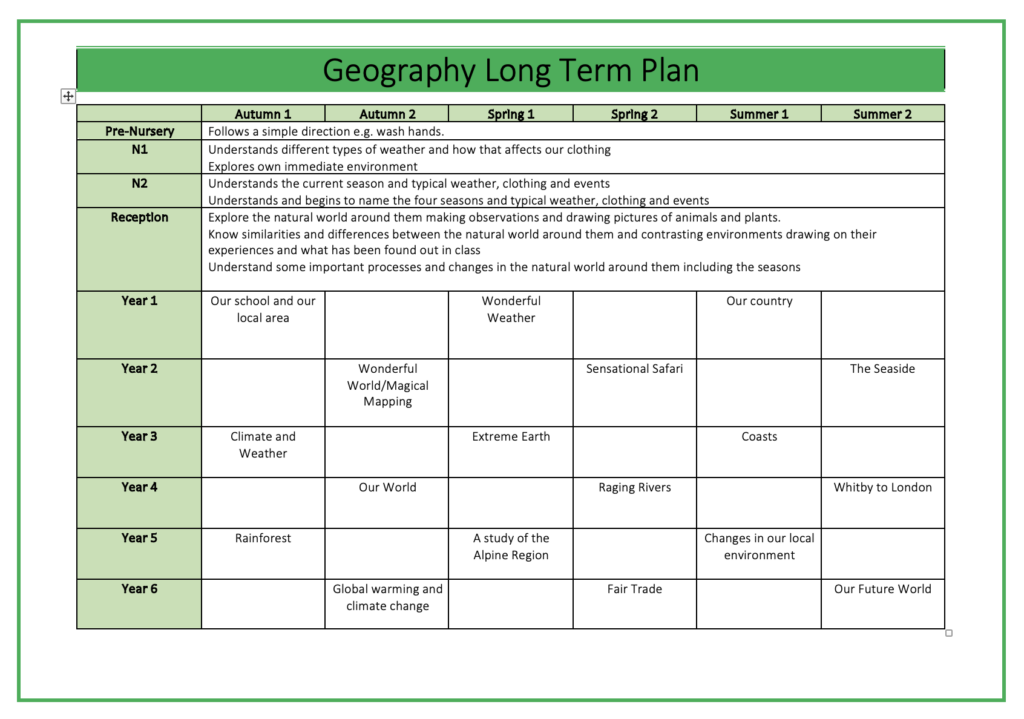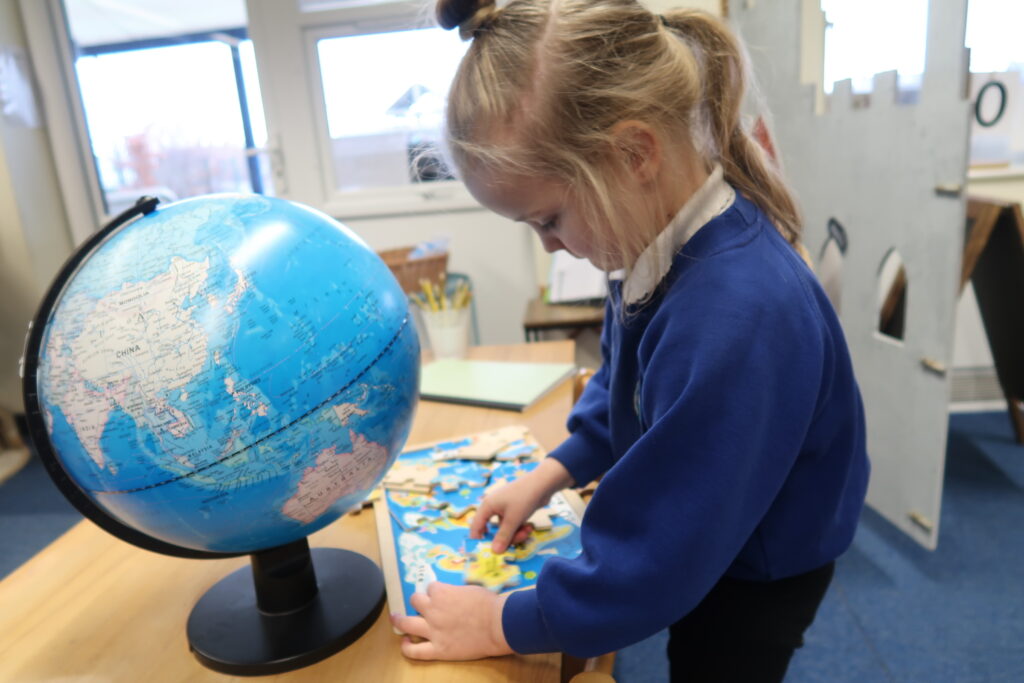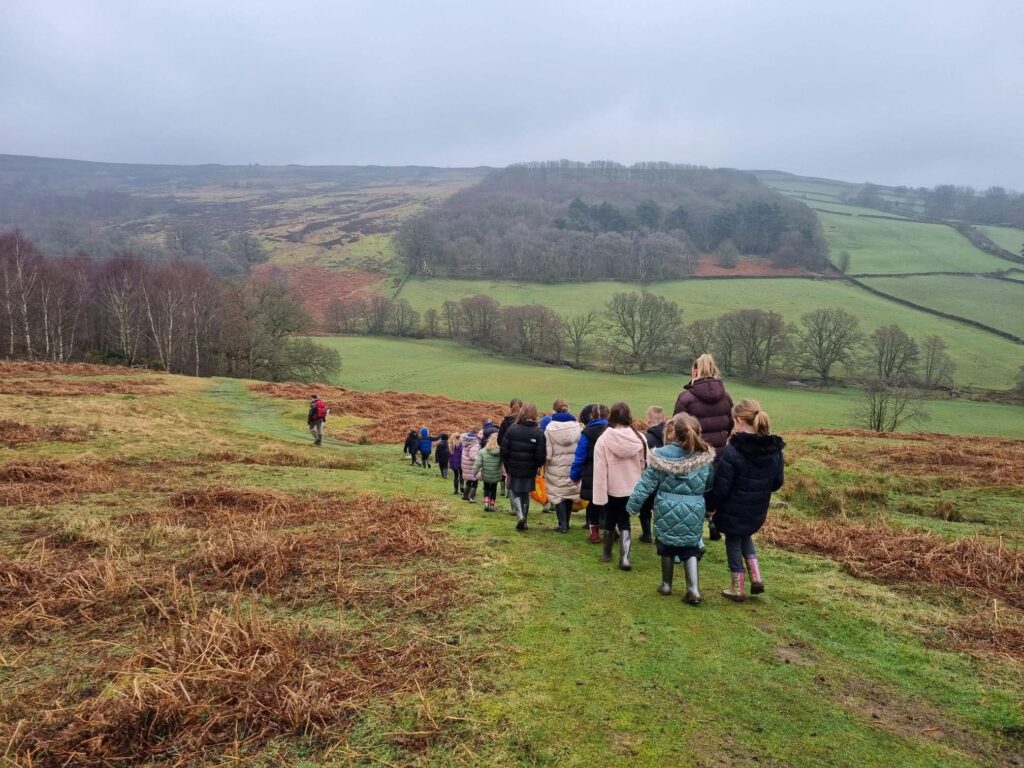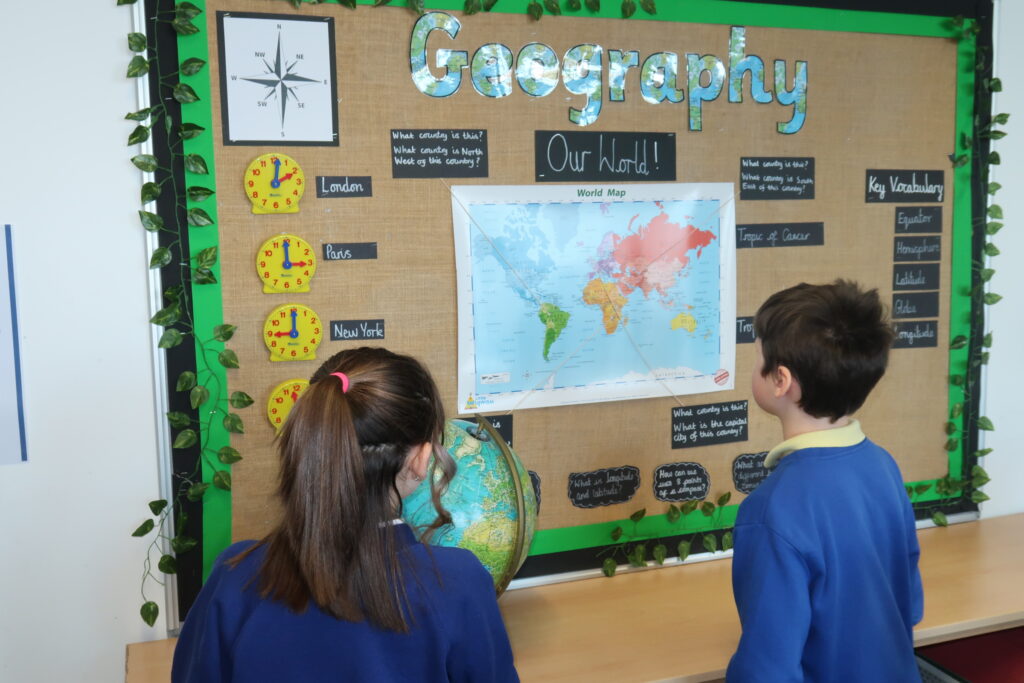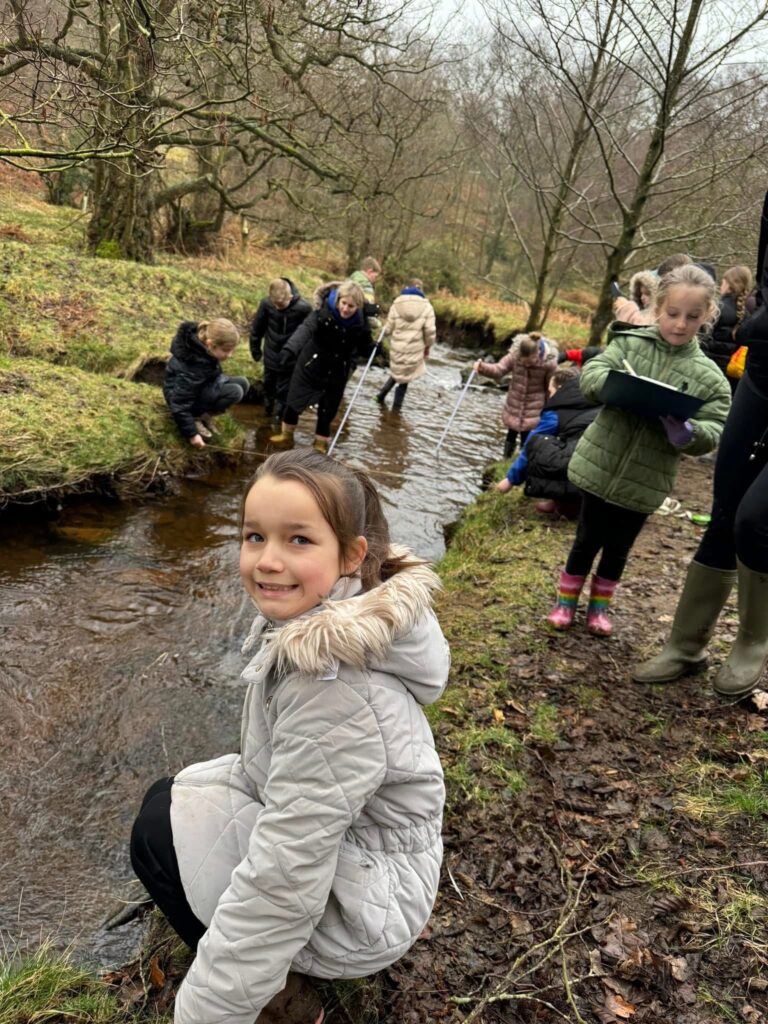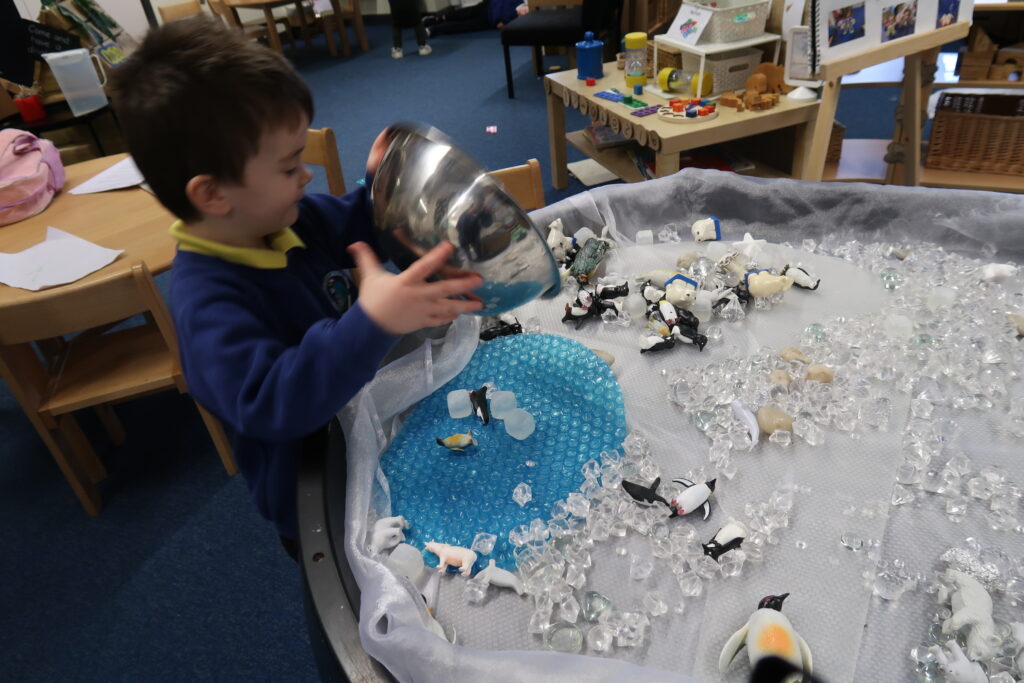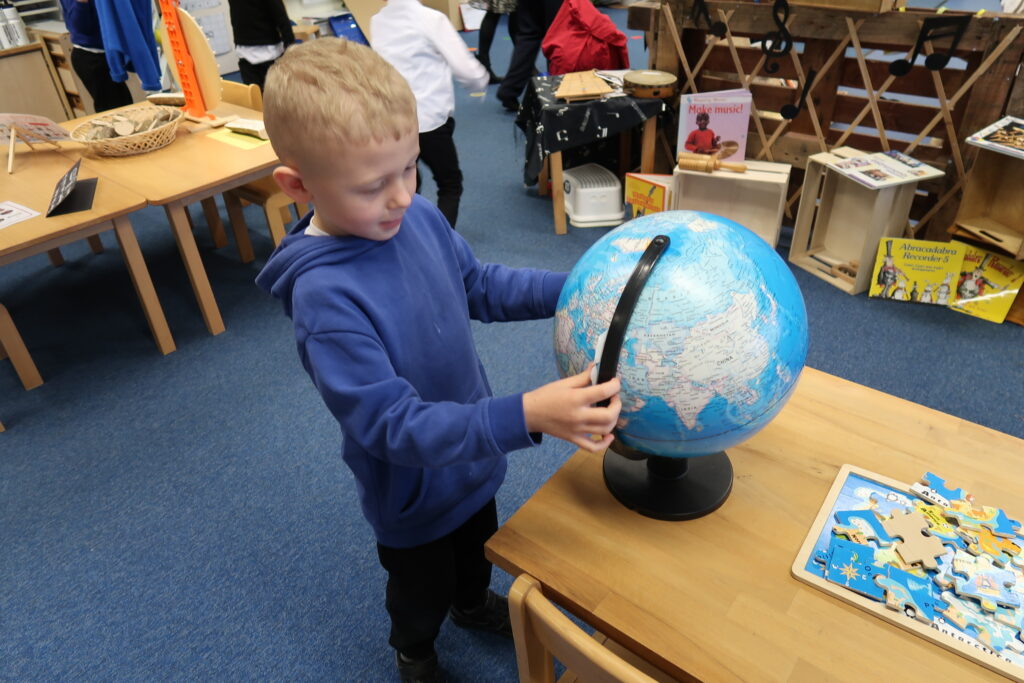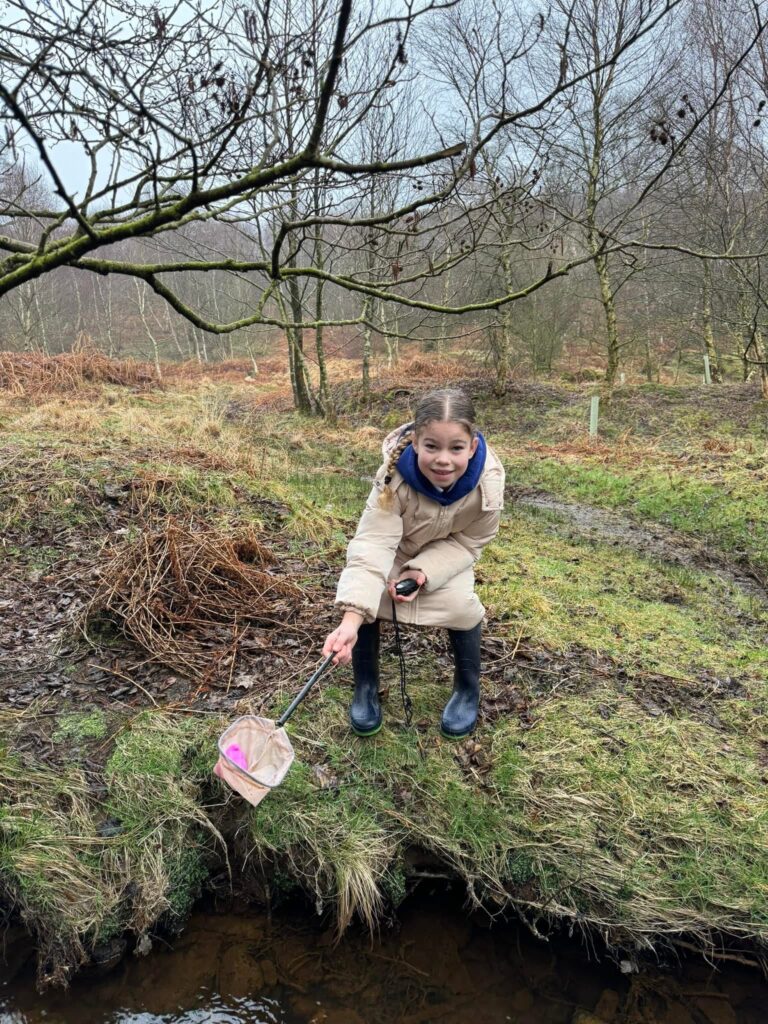As the Geography Lead at Handale Primary School, I ensure our pupils are immersed in the rich tapestry of the world’s geography. Guiding them through the intricacies of maps, continents, and countries, I witness their fascination grow as they discover diverse ecosystems, climates, and landmarks. From exploring the Amazon Rainforest to understanding the impact of human activity on our planet, our curriculum is designed to instill a deep appreciation for geographical phenomena. Through hands-on activities and field trips, we delve into topics like rivers, mountains, and weather patterns, fostering a profound understanding of the interconnectedness of our world. I ensure that our lessons align with the primary curriculum, offering a comprehensive exploration of geographical concepts that not only meet educational standards but also ignite a lifelong love for geography in our students.
Miss Thompson
Why is Geography successful at Handale?
- Geography is well taught across the school
- Children talk confidently and enthusiastically about geography
- Trips allow children to develop their geographical knowledge, skills and understanding
- Long term planning takes into account sticky knowledge and progression of skills in all four areas of geography
- Children are given opportunities to use different resources in geography such as atlases, ordnance survey maps, iPads etc.
- Through high quality planning, teaching, resources, trips, visitors and assessment children leave Handale, knowing more, remembering more and understanding more about geography.
Our Vision and Intent for Geography at Handale…
At Handale, our geography vision is to inspire in pupils a curiosity and fascination about the world and its people that will remain with them for the rest of their lives. Teaching equips pupils with knowledge about diverse places, people, resources and natural and human environments, together with a deep understanding of the Earth’s key physical and human processes. As pupils progress, their growing knowledge about the world will help them to deepen their understanding of the interaction between physical and human processes, and of the formation and use of landscapes and environments. Geographical knowledge, understanding and skills provide the frameworks and approaches that explain how the Earth’s features at different scales are shaped, interconnected and change over time.
- At Handale, we believe that high quality teaching and experiences will inspire children to think as geographers and be curious about the world that they live, locally, nationally and globally.
- Geographical knowledge and skills are progressive and sequenced through careful long term planning to allow children to progress in all four areas of geography.
- The curriculum is designed to ensure that teaching equips pupils with knowledge about diverse places, people, resources and natural and human environments, together with a deep understanding of the Earth’s key physical and human processes. As pupils progress through the school, their growing knowledge about the world helps them to deepen their understanding of the interaction between physical and human processes, and of the formation and use of landscapes and environments.
- Children will be given opportunities to learn outdoors to enhance their geographical knowledge and understanding.
- Through a clear progression in teaching, children will develop and use geographical vocabulary.
- Through high quality experiences, children will be enabled to know more, remember more and understand more about the geography curriculum.
- An initial assessment at the start of a geography topic and a gold piece of work at the end will celebrate the children’s achievements as well as demonstrating their progress and developing geography knowledge, skills and understanding.
We follow National Curriculum Objectives for Geography at Handale…
Key Stage 1
Pupils should develop knowledge about the world, the United Kingdom and their locality. They should understand basic subject-specific vocabulary relating to human and physical geography and begin to use geographical skills, including first-hand observation, to enhance their locational awareness. Pupils should be taught to:
Locational knowledge
- Name and locate the world’s seven continents and five oceans
- Name, locate and identify characteristics of the four countries and capital cities of the United Kingdom and its surrounding seas Place knowledge
- Understand geographical similarities and differences through studying the human and physical geography of a small area of the United Kingdom, and of a small area in a contrasting non-European country
Human and physical geography
- Identify seasonal and daily weather patterns in the United Kingdom and the location of hot and cold areas of the world in relation to the Equator and the North and South Poles
- Use basic geographical vocabulary to refer to:
- Key physical features, including: beach, cliff, coast, forest, hill, mountain, sea, ocean, river, soil, valley, vegetation, season and weather
- Key human features, including: city, town, village, factory, farm, house, office, port, harbour and shop
Geographical skills and fieldwork
- Use world maps, atlases and globes to identify the United Kingdom and its countries, as well as the countries, continents and oceans studied at this key stage
- Use simple compass directions (North, South, East and West) and locational and directional language [for example, near and far; left and right], to describe the location of features and routes on a map Geography – key stages 1 and 2 3
- Use aerial photographs and plan perspectives to recognise landmarks and basic human and physical features; devise a simple map; and use and construct basic symbols in a key
- Use simple fieldwork and observational skills to study the geography of their school and its grounds and the key human and physical features of its surrounding environment.
Key Stage 2
Pupils should extend their knowledge and understanding beyond the local area to include the United Kingdom and Europe, North and South America. This will include the location and characteristics of a range of the world’s most significant human and physical features. They should develop their use of geographical knowledge, understanding and skills to enhance their locational and place knowledge. Pupils should be taught to:
Locational knowledge
- Locate the world’s countries, using maps to focus on Europe (including the location of Russia) and North and South America, concentrating on their environmental regions, key physical and human characteristics, countries, and major cities
- Name and locate counties and cities of the United Kingdom, geographical regions and their identifying human and physical characteristics, key topographical features (including hills, mountains, coasts and rivers), and land-use patterns; and understand how some of these aspects have changed over time
- Identify the position and significance of latitude, longitude, Equator, Northern Hemisphere, Southern Hemisphere, the Tropics of Cancer and Capricorn, Arctic and Antarctic Circle, the Prime/Greenwich Meridian and time zones (including day and night)
Place knowledge
- Understand geographical similarities and differences through the study of human and physical geography of a region of the United Kingdom, a region in a European country, and a region within North or South America
Human and physical geography
- Describe and understand key aspects of: physical geography, including: climate zones, biomes and vegetation belts, rivers, mountains, volcanoes and earthquakes, and the water cycle
- Human geography, including: types of settlement and land use, economic activity including trade links, and the distribution of natural resources including energy, food, minerals and water Geography – key stages 1 and 2 4
Geographical skills and fieldwork
- Use maps, atlases, globes and digital/computer mapping to locate countries and describe features studied
- Use the eight points of a compass, four and six-figure grid references, symbols and key (including the use of Ordnance Survey maps) to build their knowledge of the United Kingdom and the wider world
- Use fieldwork to observe, measure, record and present the human and physical features in the local area using a range of methods, including sketch maps, plans and graphs, and digital technologies.
Geography Long Term Plan
